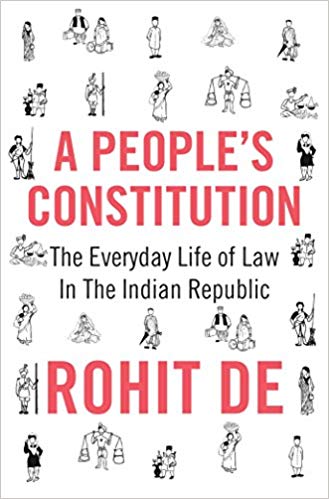Way back in 1985, I got a call from an agitated lawyer friend. He wanted me to mobilize opinion against the newly passed Administrative Tribunals Act, which took away the jurisdiction of the Supreme Court and the High Courts over service disputes of public servants, and vested it in administrative tribunals. The power of constitutional courts was being handed over to statutory tribunals, which did not even need to have judicial members on the bench.
I began to dictate an article (stenographers were not an endangered species then). My stenographer was the late SP Sampath Kumar, a government stenographer who worked for me in the evenings. When I had just done a couple of paragraphs, Sampath stopped. ‘This Act is going to affect me!’ he exclaimed. ‘But how?’ I asked. He said he was facing disciplinary action for being a member of the Ananda Marga, and he had a pending petition in the Supreme Court under Article 32 of the Constitution (itself a fundamental right), asserting his fundamental right to be a member of the organization. That petition was to now get transferred to an administrative tribunal. That was the end of my article. And we were back to Article 32, as I filed Writ Petition 12437 of 1985, SP Sampath Kumar versus The Union of India in the Supreme Court, challenging the constitutional validity of the Administrative Tribunals Act 1985.
Earlier in 1978, Randhir Singh, a driver-constable in the Delhi Police petitioned the Supreme Court. Invoking the principle of equal pay for equal work, he demanded that his scale of pay should at least be the same as that of other drivers in the service of the Delhi Administration. The Supreme Court was overwhelmed with emotion. Justice Chinnappa Reddy wrote, ‘True, he is the merest microbe in the mighty organism of the State, a little clog in a giant wheel. But the glory of our Constitution is that it enables him to directly approach the highest court in the land for redress. It is a matter of no little pride and satisfaction to us that he has done so. Hitherto, the equality clauses of the Constitution, as other articles of the Constitution guaranteeing fundamental and other rights, were most often invoked by the privileged classes for their protection and advancement and for a “fair and satisfactory” distribution of the buttered loaves among themselves. Now, thanks to the rising social and political consciousness and the expectations roused as a consequence, and the forward-looking posture of this court, the underprivileged also are clamouring for their rights and are seeking the intervention of the court with touching faith and confidence in the court.’

